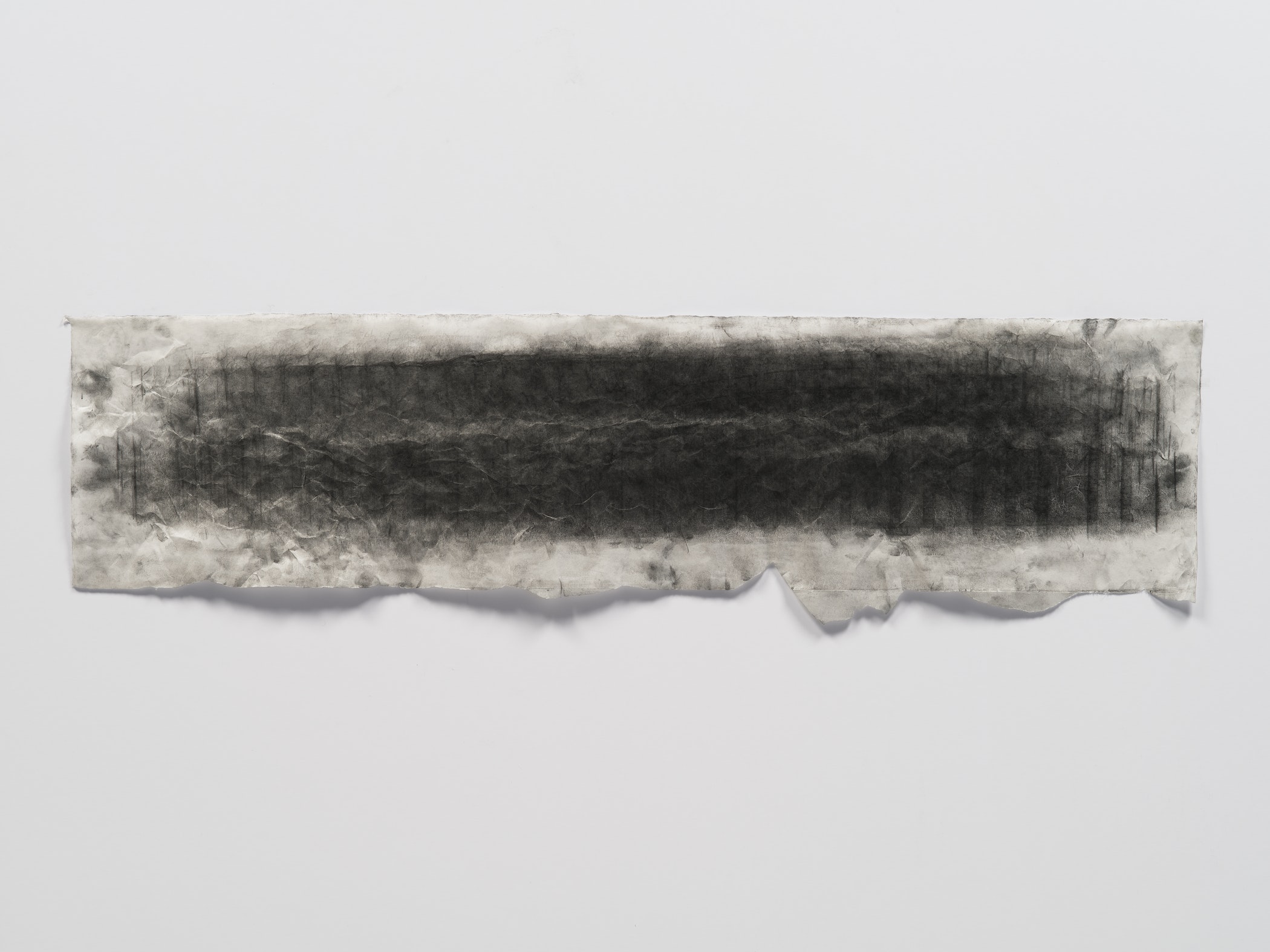don’t say spirit, say ghost
A micro-essay on how language can elude capture—sound as a door, opening to phantom geographies

you are asleep—dreaming now—and it is here where you often meet with nana, always the same scene. you are in the back seat of a car leaning against the headrest. she is in the front, smelling of smoke and apples. you cannot see her face but something tells you she is smiling the way whole bodies smile. you both are speaking but you cannot make it out, saying something with shared understanding but it is sound coming from the far end of a long hallway.
when you are younger your mother tells you that as a child you spoke to her of seeing ghosts, of a half moon speaking to you while in your crib. she tells you she could not imagine you imagining this, this moon talking to you of death and dying. as a toddler you thought a lot about them. the gone. if those not here cast a shadow. you have no waking memory of nana, your mother’s mother, but the dream is a door.
black folks don’t say holy spirit, black folks say holy ghost. though you can catch the spirit, let the spirit speak, have its way, move you, it ain’t the holy spirit doing this, it’s the holy ghost. are spirits and ghosts the same? do both of them haunt? in the church of your childhood, the black pentecostal hole in the wall along the steel and smolder of an industrial stretch of Minneapolis, you learned something about the ghost, about speaking in other tongues. shaBA sho YO seeYA. you gotta let the spirit take control your mother tells you, you just open your mouth and let the spirit speak. not necessarily a known language, and you remember laughing and babbling with other children as you watched the ghosts ride the tongues of your parents, SHONDO SOPOTeeeeeeMA!! what they saying? you cannot make it out. but you keep practicing giving your tongue permission to disorder sound, you allow your mouth to wander from sense-making protocols.
this is also opacity, a strategic refusal of the specular, which is to say, how you are taught things are known, fixed & quantified, this is a refusal to be known. to elude capture. sound too is a door, opening wide to a phantom geography.
in his third studio album, 14 years following Voodoo, D’Angelo released Black Messiah in the wake of two grand jury decisions of no indictment in the murders of Michael Brown and Eric Garner by police. Black Messiah was called a masterpiece, a “dream palace” and though widely praised, many also noted the muffled speech in the songs, the difficulty comprehending the lyrics. something of his sound riding the air in an angular pattern, something in the song too heavy for meaning. you know something of this wail, this angular flight, this sound made from the far end of a long hallway. son of a pentecostal preacher himself, D’Angelo’s song is familiar with the ghosts your tongue was taught to loosen itself to. a cacophony and riot of noise, not nonsense, din, and you know this to be discourse too, that language is a door that need not always cohere, that it may crack open, split wide, fragment.
you keep a spectral diary for the past year. attempting to name your dead, measure the length and weight of their absence. you cannot name them all. so much of your reading on the ghostly goes back to silence, erasure, and you wonder about the sound of haunting, how your ghosts are screaming and how these articulations are apparent if not legible. there are traces in the ruins. you end each entry telling yourself to stay with the ghost. slipping away. SEEEyaTOSHObaBA. all you know to do is to open your mouth and let the spirit speak. not you, not you, not you. somewhere in the backseat of a car casting a shadow with your gone. picking up speech, a kind of dry bones to sound, and casting it down a long hallway toward something more and more unknowable.